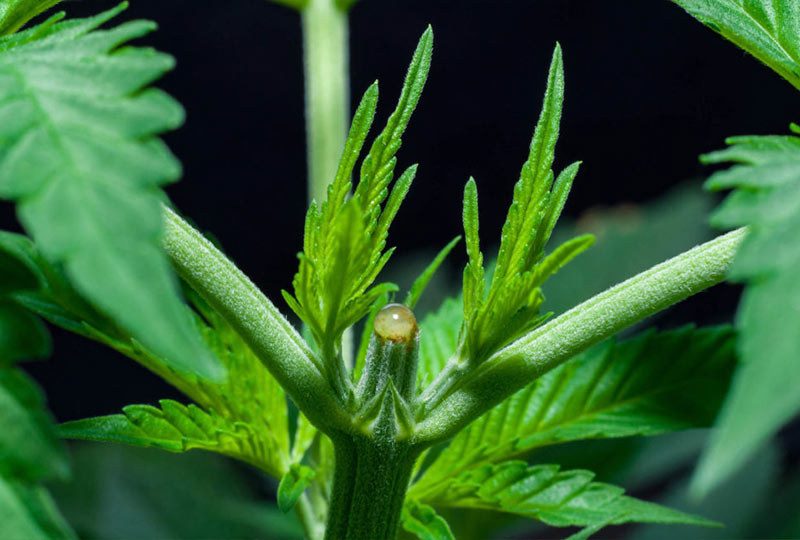SCROG GROWING
Scrog Growing: A Beginners Guide
What is Scrog (Screen of Green)?
Scrog, or “Screen of Green,” is a highly effective cannabis cultivation technique that maximizes yields by encouraging the plant to grow horizontally across a canopy. By using this method, growers can significantly increase their harvest compared to traditional indoor growing methods. For example, a cannabis plant that typically yields 40-50 grams when grown conventionally can produce between 250-450 grams using the Scrog method, depending on the strain and the growing conditions.
While the Scrog technique may sound complex, it’s surprisingly simple. With a bit of planning, preparation, and care, you can successfully implement this method and see incredible results.
When to Use the Scrog Method
If space is limited, Scrog growing is ideal. Many home growers prefer to use a grow tent, which is an excellent choice for the Scrog technique. Grow tents not only keep your equipment organized and out of sight but also help to manage the plant’s odour. They create a controlled environment where cannabis plants thrive.
Most grow tents come equipped with a scrog net, designed to fit perfectly inside the tent. However, if your grow tent doesn’t have one, don’t worry! Scrog nets are easily available online, or you can even make one yourself with minimal effort.
The Basics of Scrog Growing
Before you dive into the Scrog technique, it’s important to note that you must use a feminized cannabis plant for this method. The plant needs to stay in its vegetative state (with 18 hours of light and 6 hours of darkness) until the entire canopy is filled. Only then can you switch to the flowering cycle (12 hours of light and 12 hours of darkness).
It’s essential not to use auto-flowering plants for Scrog growing, as they will begin flowering too early—usually around weeks five or six—before the canopy has a chance to fill the screen.

Topping the Plant: An Essential Step
One of the key steps in the Scrog process is topping the plant. This may sound intimidating, but it’s a necessary part of encouraging the plant to grow horizontally. Once your plant has developed at least five nodes (pairs of branches extending from the main stem), you will need to top the plant by cutting off the fifth node.
Here’s how to do it: Using a sharp, clean pair of scissors, carefully cut the top of the plant just above the fourth node. This will allow the two remaining branches to grow outward, forming the foundation of your horizontal canopy.

Placing the Scrog Net
After topping the plant, it’s time to position the Scrog net. The net should be placed 10-15 cm above the plant, right where the topping occurred. As the branches grow, begin gently tucking them underneath the net. This encourages the plant to grow horizontally, spreading out to fill the available space.
Manipulation Techniques for Better Growth
To enhance the plant’s horizontal growth, gentle manipulation of the branches is essential. You can achieve this by carefully bending the branches. Using your thumb and index finger, lightly bend the branch, or roll it between your fingers to soften the plant tissue, making it more flexible for training.
Be cautious not to snap the branch. However, if a branch does break, it’s not the end of the world. You can repair the damage by applying some tape to the break. The plant will heal itself, forming a “knuckle” at the site of the break, which can even strengthen the branch over time.
As the plant continues to grow, aim to direct the branches in different directions, ensuring all gaps in the screen are filled. Once your canopy is fully developed, it’s time to switch the light cycle to 12 hours of light and 12 hours of darkness to initiate the flowering phase.
The Scrog method may require a bit of patience and care, but the results speak for themselves. With careful planning, topping, and manipulation, you can transform a small indoor space into a thriving garden that produces impressive yields. Whether you’re working with limited space or simply want to maximize your harvest, the Screen of Green technique is a fantastic way to grow cannabis plants to their full potential.
Sustainable Cannabis
Sustainable Cannabis The cannabis industry continues to grow and evolve, and sustainable cannabis...
Cannabis Use At Work
Cannabis Use At Work As the cannabis industry continues to expand and societal perceptions shift,...
Common Growing Mistakes
Common Cannabis Growing Mistakes Cannabis cultivation is now more accessible than ever, with many...
Choosing The Right Medium
Choosing The Right Medium For Growing Cannabis Soil vs. Hydroponics vs. Coco Coir When it comes to...
Auto-flowering vs Photoperiod
Auto-flowering vs Photoperiod Growing cannabis has evolved into an art and science, with various...
Germinating Cannabis Seeds
Germinating Cannabis Seeds Three Proven Methods Germinating cannabis seeds is the first critical...
Growing Medical Cannabis
Growing Medical Cannabis As cannabis continues to gain legal status for medicinal purposes...
Cannabis Concentrates
Cannabis Concentrates Cannabis concentrates are quickly becoming one of the most popular methods...
Growing Cannabis For the First Time
How to Grow Cannabis for the First Time A Quick Beginner's Guide Growing cannabis for the first...
Indica Versus Sativa
Indica vs. Sativa Understanding the Key Differences When it comes to cannabis, understanding the...
Drying And Curing Cannabis
Drying And Curing CannabisAfter months of hard work, your plants are ready to harvest, marking the...
When To Harvest Your Cannabis Plants
When to Harvest Your Cannabis Plants A Comprehensive Guide for New Growers One of the most...
Growing Cannabis Indoors vs Outdoors
Growing Cannabis Indoors vs. Growing Cannabis Outdoors Which is Best for You? As the popularity of...
What Are Auto-flowering Cannabis Seeds?
What Are Auto-Flowering Cannabis Seeds? Auto-flowering cannabis seeds are a unique type of...
What Are Feminized Cannabis Seeds?
What are Feminized Cannabis Seeds? Feminized seeds are a cannabis seed that produces female plants...
Dr Raphael Mechoulam And His Work
Dr. Raphael Mechoulam and His Work Prof. Dr. Raphael Mechoulam, often referred to as the "father...
The History Of Cannabis
The History of Cannabis A Journey Through Time Cannabis, often shrouded in controversy, has a rich...

